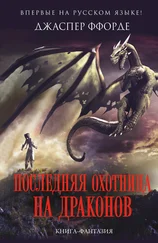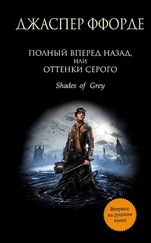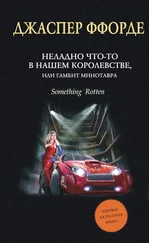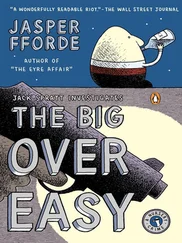This was true, of course. I had almost nothing except Sprockett and the clothes I was wearing.
“At present yes, that is true,” I admitted somewhat sheepishly.
Mrs. Winterhope poured the contents of the empty kettle into a teapot that I noted contained no tea.
“Sprockett is the most advanced automaton we possess,” she continued, “and whilst not wishing to be indelicate in these matters, I cannot help thinking that his career may not be well serviced by someone who finds herself—I’m sorry to be blunt—in a position of . . . unreadness .”
She stared at me with a kind yet desperate expression and handed me an empty cup.
“Would you like no milk?”
“Yes thank you,” I said, not wishing to embarrass her. Not a single reader in over seventeen years had graced the Winterhopes’ pages, so the reader stipend was unavailable to them, and they had, quite literally, nothing. The only possible avenue to a better life was through the one character who might conceivably find a placement in the world of wider readership. Four days ago I’d been a potential help; now I was a millstone. I knew what I had to do.
“Yes,” I said to Mrs. Winterhope, “I understand.”
She nodded politely and patted me on the arm. “Will you stay with us tonight?” she asked. “We have absolutely nothing, but we would be happy to share it with you.”
I told her I would be honored to share in their nothing, then excused myself to go for a walk.
I left the novel and wandered down through the narrow streets to where the Tennyson Boardwalk ran alongside the beach. The walk was full of evening strollers and traders, mostly selling book-clearance salvage from those novels that had been recently scrapped. I stopped to lean on the decorative cast-iron railings and absently watched the Text Sea lap against the foreshore, the jumbled collection of letters heaving and mixing in the swell. Every now and then, a chance encounter would construct a word, and the constituent parts glowed with the joyous harmony of word construction. Farther down, some kids were fishing these new words from the sea with hooked sticks. Three-letter constructions were thrown back to potentially grow larger, but longer ones were pulled ashore for possible sale. While I stood there watching, they caught a “theodolite,” a “linoleum” and a “pumpkin,” although truth to tell the “pumpkin” was actually a “pump” and a “kin” that were tickled together after being pulled from the Text Sea.
I couldn’t help feeling a bit sorry for myself. I had no job, no book, no friends and no immediate prospects. The man I loved was real and wholly unavailable, the deputy man I loved was a mass murderer. More important, I was no nearer to who had killed Thursday, nor to what Sir Charles Lyell had discovered about Racy Novel that was so potentially devastating that it was worth murdering him, Thursday and Mediocre for. The truth was this: I wasn’t up to scratch. I’d been trying too hard to be her, and I had failed.
I thought of Whitby, then of Landen, and what he had said about my actually being Thursday and not knowing it. I wasn’t in agreement with him over that one, and when I’d vanished in front of his eyes, he would have known that, too. I thought for a minute as I considered putting myself in Landen’s shoes. He might try to get in touch with me—after all, we both wanted Thursday back. The question was this: If I wanted to contact someone in the BookWorld, how would I go about it?
The Mediocre Gatsby had picked Thursday up in Sargasso Plaza, a stone’s throw from where I was now, right on the southeast tip of Vanity. She was likely to have been hiding close by, somewhere she would have been off the Council of Genres’ radar—somewhere even the Men in Plaid would fear to tread. And there it was, staring at me across the the bay—Fan Fiction. Where better to hide a Thursday than in a bunch of that? The small island was lit up by thousands of lightbulbs strung from trees and lampposts. It was a busy place, that much I knew, and given that Vanity had been unfairly shunned by the rest of Fiction, the fact that Fan Fiction was isolated still further gave one an idea how poorly it was regarded.
I walked to the entrance of the narrow causeway and approached the two game-show hosts who were guarding the entrance. One was sitting on a high stool and dressed in a gold lamé suit, while the other was holding a hunting rifle.
“Hello, Thursday!” said the first host, beaming happily at me with a set of teeth so perfectly white that I had to blink in the glare. “Back to win further prizes?”
It was Julian Sparkle of Puzzlemania . We had met a few years back when the real Thursday was attempting to train me up for Jurisfiction. He was what we called an “anecdotal,” someone who lived in the oral tradition, ready to leap to the Outland when puzzles and brain teasers were related—usually during boring car journeys or in pubs. The last time we’d met, I would almost certainly have been eaten by a tiger if not for Thursday’s brilliant intervention.
“I was actually thinking of visiting Fan Fiction,” I replied.
“No problem,” said Julian in his singsong voice. “Anyone can go in—but no one can come out.”
As if to bring home the point, the second game-show host showed me the hunting rifle.
“Unless,” said Julian Sparkle, “you want to play Puzzlemania ?”
“What do I win?”
“A set of steak knives.”
“And if I lose?”
“We destroy you with a high-powered eraserhead.”
“Fair enough,” I replied. “I’m in.”
Sparkle smiled warmly, and I stepped to a mark on the floor that he indicated. As I did so, the lights seemed to dim, except for a bright spotlight on the two of us. There was a short blast of applause, seemingly from nowhere.
“So, Thursday Next, today we’re going to play . . . ‘Escape Across the Bridge.’”
He indicated the long, narrow causeway.
“It’s very simple. We erase anyone we see walking towards us across the causeway. There is no way to go round the causeway, and you’ll be dissolved in the Text Sea if you try to swim.”
“And?”
“That’s it. We check the bridge every half minute, and it takes four minutes to run across.”
As if to accentuate the point, the second host noticed someone trying to sneak across as we were talking. He shouldered the rifle and fired. The unfortunate escapee exploded in a chrysanthemum of text, which was quickly snapped up by the gulls.
“Ha-ha!” said the host, reloading the rifle. “Bagged another Baggins.”
And he made a mark on his tally board, which contained several hundred other Bagginses, three dozen Gandalfs, a plethora of Pratchett characters and sixty-seven Harry Potters.
“Right, then,” said Sparkle, “off you toddle.”
“Don’t you want the answer?”
He smiled in an oddly unpleasant way. “You can figure it out for the return journey.”
I walked across the causeway with a curiously heavy heart, as I had no idea how to get back, but once I arrived on the other side, it seemed a party was in full swing. Everyone was chatting to everyone else, and the mildly depressed feeling I had felt over in Vanity seemed to vanish completely.
“What’s the party about?” I asked a Hobbit who had thrust a drink into my hand.
“Where have you been?” she said with a smile. “Fan Fiction isn’t copying—it’s a celebration . One long party, from the first capital letter to the last period!”
“I never thought of that.”
“Few do—especially the authors who should really accept the praise with better grace. They’re a bunch of pompous fatheads, really—no slur intended. Nice clothes, by the way.”
Читать дальше











![Джаспер Ффорде - Вечный кролик [litres]](/books/436518/dzhasper-fforde-vechnyj-krolik-litres-thumb.webp)
